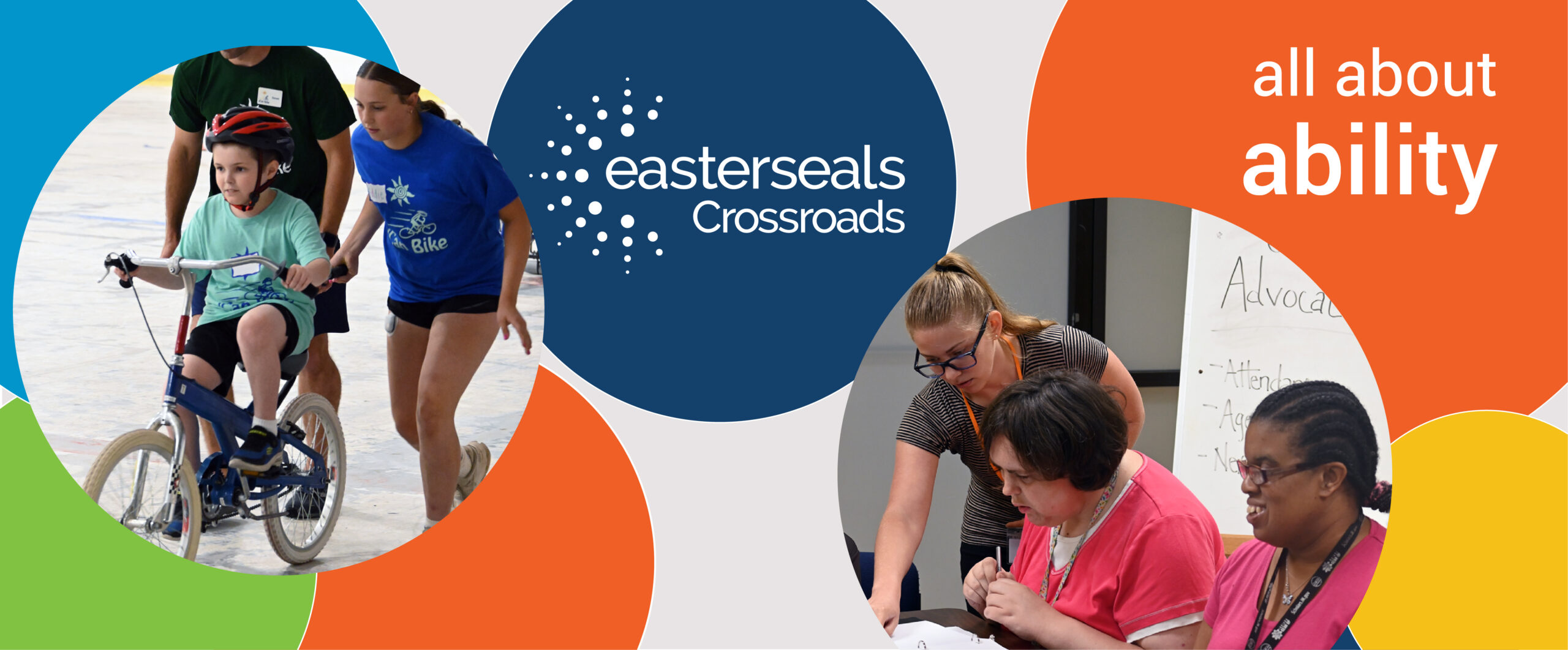All About Children’s Therapy Services
Goals
Our clinics are currently serving approximately 150 people per week and we hope to provide over 7,000 therapy sessions and evaluations throughout the year. Our First Steps therapists provide over 200 therapy sessions per week.
We exist to for families to support their children’s growth and development so that they can be as successful as possible in life.
Who is Eligible for Services
What Makes our Children’s Therapy Services Unique
At Easterseals Crossroads, we grow with a child in our ability to provide therapy and options for families. Not only do we offer occupational, physical, speech and developmental therapy, we also provide augmentative and alternative communication assessments/treatments as well as specialized treatment for individuals with feeding challenges. If a child can benefit from an augmentative communication device, our assistive technology department offers a lending library option so that parents/caregivers can try a device to see if it meets a child’s needs before purchasing.
Our wrap-around options include our extensive summer camp program with six different camps from an overnight, week-long option for individuals with autism to several day-camp possibilities. On a weekly basis, we offer respite options for families who want to explore an evening (or day) out activity. We are dedicated to our families, and we take great pride in offering meaningful opportunities that make a difference in the lives of those we serve.
More Information
For clinical services at our north (Keystone Avenue) location, parents/caregivers can call 317.466.1000 and ask to speak to our clinic admissions specialist for our Keystone location. For the south (Thompson Road) location, please call 317.782.8888. Those interested in First Steps should call 317.557.BABY.
Information for any service can also be accessed by contacting us.



 Easterseals Crossroads is pleased to partner with national Easterseals and affiliates in Arkansas, Colorado, Greater Houston, Massachusetts, New Hampshire and Washington by sharing resources and best practices in offering digital learning opportunities for young adults with disabilities in our community.
Easterseals Crossroads is pleased to partner with national Easterseals and affiliates in Arkansas, Colorado, Greater Houston, Massachusetts, New Hampshire and Washington by sharing resources and best practices in offering digital learning opportunities for young adults with disabilities in our community.

